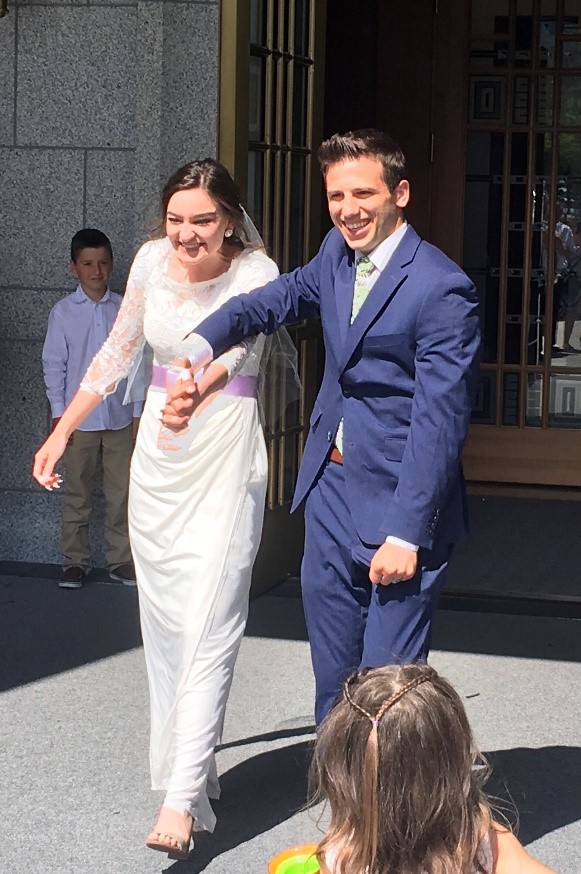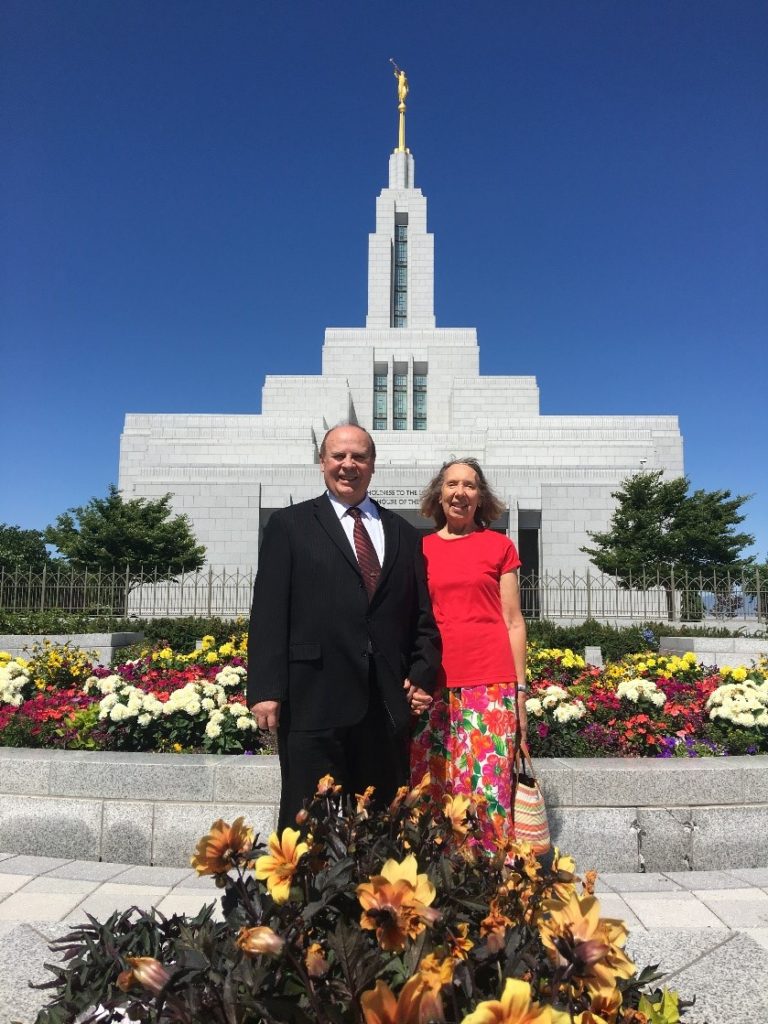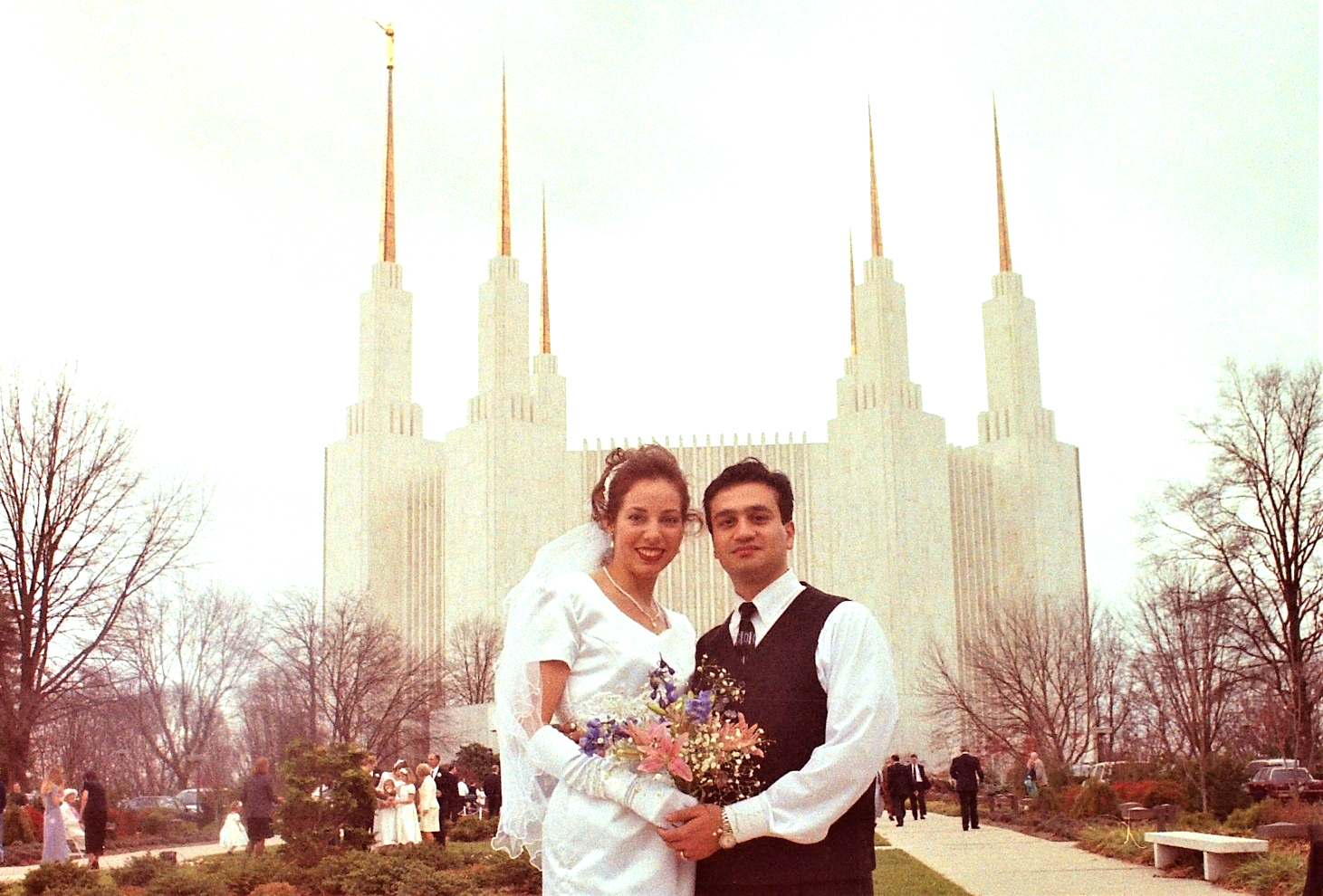‘Til Death Do Us Part–or for All Eternity?
Following the conviction of notorious drug lord and murderer Joaquin “El Chapo” Guzman and his sentence to life behind bars plus thirty years, a New York Post headline proclaimed, “El Chapo will never see his beauty-queen wife again.” Few could argue with the life sentence. But to never even see his wife again seemed almost worse than the incarceration itself. It was hard not to agree with Guzman’s lawyer, that “It’s kind of gruesome.”

Even more tragic may seem the story of Will Troy Byler and Bailee Raye Ackerman Byler. The two Texas students were married on November 3, 2018. They had been husband and wife for less than two hours when their helicopter crashed early the next morning. Both the newlyweds and the pilot died instantly. It is easy to feel El Chapo and his accomplice wife deserve to be forever separated. But it seems so unfair that Will and Bailee should suffer the same fate.

Yet, virtually every married Christian couple in the past 2000 years has understood that the same destiny awaited them. They have accepted that marriage lasts only “until death do us part.” Many have reached that conclusion because of a misreading of Matthew 22:30. There Jesus is quoted as saying, “In the resurrection they neither marry, nor are given in marriage, but are as the angels of God in heaven.” A typical biblical commentator summarized as follows:
Evidently, there will be no such thing as marriage in heaven. This does not mean that a husband and wife will no longer know each other in heaven. This also does not mean that a husband and wife could not still have a close relationship in heaven. What it does seem to indicate, though, is that a husband and wife will no longer be married in heaven.
A more careful reading of the passage in context, however, leads to the opposite conclusion. The setting was that a group of Sadducees came to Jesus, trying to trap Him. They tried to provoke Him into giving answers they could argue were unfair or inconsistent with Jewish teachings. But, in the first place, the Sadducees didn’t even believe in a resurrection. They totally rejected the idea that anyone could be married in the next life. But they posed a preposterous situation wherein they claimed that there had been “among us” (that is, among the unbelieving Sadducees) a woman who had been married in succession to seven different men. All were brothers, each of whom died before the woman. They demanded Jesus tell them to whom the woman would be married in heaven.
Had Jesus told them she would be married to the first husband, the Sadducees would have argued for the rights of the other six. Had He picked the last husband, they would have been equally demanding on behalf of the first six. So, this was clearly not a time for Jesus to “cast pearls before swine” and unfold the beauties of eternal marriage. Rather, it was a time to escape from the intended entrapment. He had to do that often at this stage of His ministry.
Jesus first told his questioners that they didn’t understand either the scriptures or the power of God. That in itself suggests there was much more to His doctrine on the subject than the Sadducees understood. But He then gave an answer that clearly applied only to the case of the seven fictitious brothers and the wife.
He said, “in the resurrection they neither marry, nor are given in marriage.” He was not talking at all about the opportunities available to faithful believers, who are married by one authorized to perform eternal unions. His answer applied only to the eight Sadduccee associates, who obviously would not have availed themselves of the opportunity of an eternal marriage, since they didn’t even believe there was an eternity ahead.
But why would the Sadducees even have asked the question? Isn’t it obvious that Jesus indeed had been teaching about eternal marriage? The very fact that they thought they could force Him to choose among the seven options is compelling evidence that they understood Jesus’ doctrine to include the possibility of husband and wife continuing the marriage relationship beyond the grave.
There are multiple other passages in the Bible which support the idea of marriage in heaven. They include:
Genesis 2:18-24: God proclaimed, “It is not good that the man should be alone.” He didn’t say that it would be any better in the next life than in this. When God united Adam and Eve in marriage, He added, “Therefore shall a man leave his father and his mother, and shall cleave unto his wife: and they shall be one flesh.” Significantly, this was while Adam and Eve were still in the Garden of Eden, before death had entered into the world. A ceremony that included “until death do you part” would have had no meaning in Eden.
Ecclesiastes 3:14: “Whatsoever God doeth, it shall be for ever.” Is it unreasonable to extend that to understand that if a couple is married by God’s authorized representative, it is intended to be “forever”?
Matthew 16:19: Jesus told Peter, and by extension the other apostles who shared the same authority, “Whatsoever thou shalt bind on earth shall be bound in heaven: and whatsoever thou shalt loose on earth shall be loosed in heaven.” Wouldn’t that have obvious implications for a marriage “bound on earth” by those authorized to perform such “bindings,” or “sealings”?
1 Corinthians 11:11: “Neither is the man without the woman, neither is the woman without the man, in the Lord.” Paul gives no indication whatsoever that this is any less true in the life to come than in this.
1 Peter 3:7: Peter teaches that husband and wife are “heirs together of the grace of life.” That certainly sounds like Peter had something more in mind than a relationship which had a build-in divorce upon the death of either party.
Genesis 1:27 and Acts 17:28-29: These passages clearly teach that we are not only literally created in God’s image, both male and female, but that we are His offspring. As our bodies were created by our earthly parents, Paul is obviously teaching that we are God’s offspring in the sense that our spirits were created by Him in a premortal life. Hebrews 12:9 similarly confirms that there is a “Father of spirits” just as we have fathers of our flesh.
Paul’s argument is that if we really are the “offspring” of God, He should be something like us, and we like Him. If His image includes both male and female, does not that suggest that we have a Heavenly Mother as well as a Heavenly Father? And would not divine and loving parents want their children to grow up to be like them, with similar opportunities? Just as our spirits were born in a premortal life to our divine and eternal parents, would we not anticipate having the opportunity in eternity to continue to have offspring ourselves? Could any idea be more logical or natural?
But it was not from a more careful reading of the Bible or from superior logic that Latter-day Saints came to understand that marriage could and should last forever. It was through new revelation through the Prophet Joseph Smith. God taught him that those who are married (sealed) by priesthood authority in this life are companions not only until the end of their mortal lives, but for all eternity, if they continue faithful.
Such marriages today are performed in temples of The Church of Jesus Christ of Latter-day Saints throughout the world. In countries where the laws of the land do not recognize the legitimacy of a marriage performed in a temple, a couple married by civil authority may subsequently be “sealed,” which means to have their marriage ratified and extended for eternity. They are thereby bound together as husband and wife forever, provided they keep the promises they made at the time of that sealing.
I recently had one of the best experiences of my life as I had the opportunity to perform the marriage and sealing of our grandson, Dallin Hyrum Cazier, and his bride Amy Noel Wright, in the Draper, Utah temple. Part of what made it such a great day was having my wife and eight of my own children and spouses of most of them present. But the best part was realizing that whatever happened to Dallin and Amy after that day, nothing external to themselves had the power to break their union, either in this life or the next. I felt an overwhelming feeling of love and gratitude for what God has done for us in making possible this unspeakably great blessing.
This opportunity is open to everyone, living or dead, who is willing to accept the gospel of Jesus Christ and live by its teachings. Those who did not have that opportunity in this life will hear the gospel in the life to come. There they will have the opportunity to accept it or reject it. Their living relatives will have the opportunity of entering a temple and being sealed vicariously on their behalf. This means that Will and Bailee can still have the forever marriage they dreamed of. That is one of the major reasons for which the Church is building temples throughout the earth at an ever-increasing pace.

My wife, Virginia, and I were married nearly fifty-six years ago. It seems barely yesterday. It was wonderful back in 1963, but it just keeps getting better every year and every day. Life expectancy tables suggest we may not have many more decades left together in this life. If I had to face the prospect that something so wonderful were coming to an end, I would feel much like El Chapo (deservedly) feels in prison. But thanks to the gospel of Jesus Christ and the priesthood power by which Virginia and I were married and sealed, our marriage in no way is coming to an end. We are just getting started! For that I am more grateful than words can express.

